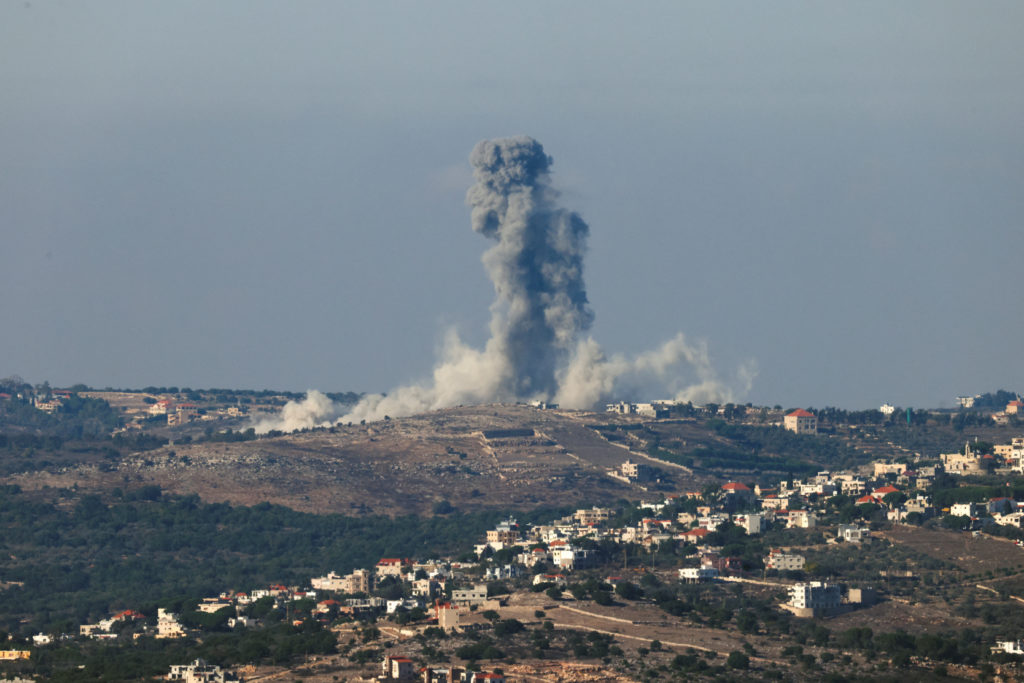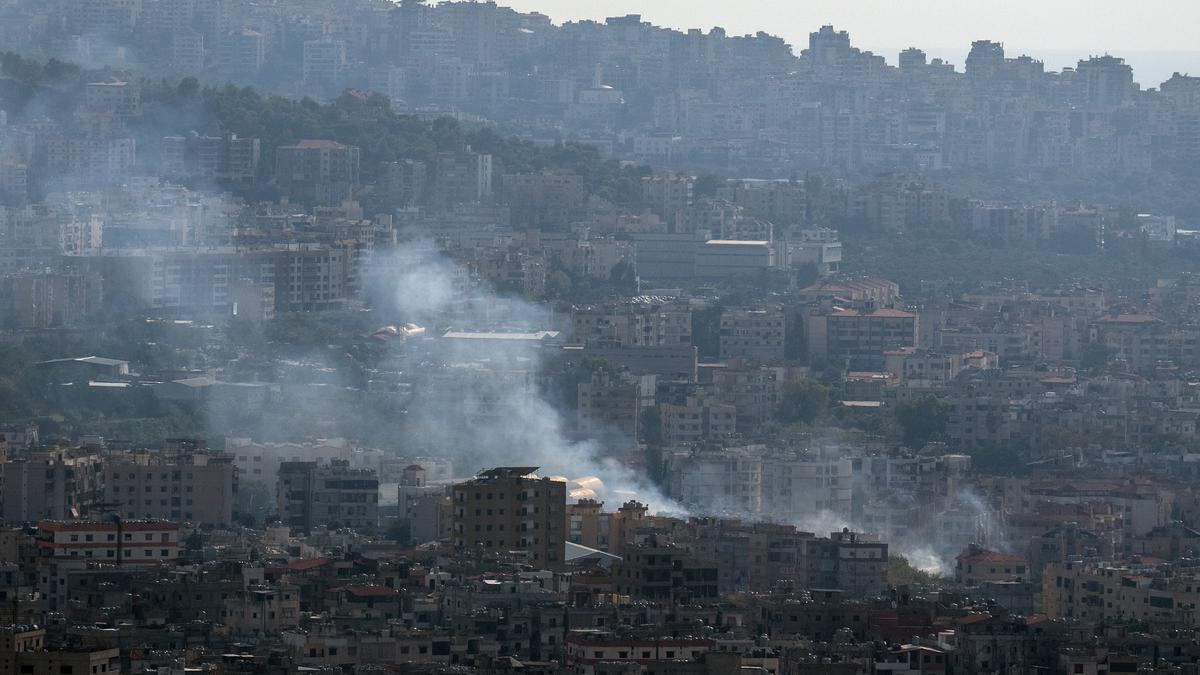Israel airstrikes Houthis targets in Yemen following a series of high-profile military engagements with Hezbollah in Lebanon, marking a significant escalation in the ongoing Middle Eastern conflict.
These recent developments have led to heightened tensions across the region, with Israel expanding its military campaign beyond Lebanon and into Yemen, targeting the Iran-backed Houthi rebels.
In the aftermath of the strikes on Hezbollah, which included the killing of key leaders, Israel turned its attention to the Houthis in Yemen. The strikes on Sunday came as a response to a ballistic missile attack launched by the Houthis on Israel’s Ben Gurion airport.
Read : Missile Fired at Israel from Yemen, Sirens Sounded Across Cities
The Israeli military retaliated swiftly, striking key Houthi facilities in the city of Hodeida, including power plants and sea port infrastructure. This move further complicates the already delicate situation in the Middle East, as multiple fronts are now witnessing Israeli military action.
The Conflict with Hezbollah
Israel’s military operations in Lebanon have been at the forefront of news in recent weeks. After a devastating airstrike that killed Hezbollah’s overall leader, Hassan Nasrallah, along with other senior commanders, Israel’s military continued its aggressive campaign.
Read :Yemen’s Houthis Fire Palestine named Ballistic Missile Towards Israel’s Eilat
Israeli airstrikes intensified in southern Lebanon and the Bekaa region, with relentless daytime bombardments reported in the local media. The health ministry in Lebanon confirmed the deaths of 24 people in Sidon as a result of these airstrikes, with at least 29 others injured. This came after consecutive strikes on two adjacent buildings, causing widespread destruction.
Amid this, Israel claimed the lives of more high-ranking Hezbollah officials, including Nabil Kaouk, the deputy head of Hezbollah’s Central Council. Kaouk’s death, along with other senior commanders, signaled a major blow to the Lebanese militant group.
Israeli airstrikes on Hezbollah have been methodically targeting leaders who have long evaded both death and detention, further weakening the group’s central command.
The ongoing conflict with Hezbollah has significantly influenced Israel’s decision to expand its military operations to other regional actors, particularly the Houthis.

Israel Airstrikes Houthis in Yemen
On Sunday, Israel airstrikes Houthis targets in Yemen, marking another major escalation. The Israeli military claimed that these strikes were in direct retaliation for the Houthi missile attack on Ben Gurion airport.
The Houthis, an Iran-backed rebel group that has been engaged in a civil war in Yemen, have grown increasingly involved in the broader regional conflict, often launching attacks on Saudi Arabia and now Israel.
The Israeli airstrikes focused on key Houthi-controlled infrastructure in Hodeida, a strategic city on the Red Sea. Israeli forces targeted power plants and sea port facilities, aiming to cripple the Houthis’ ability to operate and launch further attacks. According to reports, plumes of smoke and fire were seen over the city following the strikes.
Despite this, Houthi media claimed that they had taken precautionary measures before the airstrikes, evacuating key oil storage facilities to minimize damage. Nasruddin Ammer, deputy director of the Houthi media office, stated that the strikes would not deter the group from continuing their attacks on shipping routes or on Israel.

The decision to target Houthi infrastructure is a reflection of Israel’s broader strategy in the region. The Houthis, like Hezbollah, are seen as a key proxy of Iran, and their growing involvement in attacks against Israel marks a concerning shift. Israel’s strikes aim to weaken the Houthi’s operational capacity and send a clear message that further aggression will be met with military force.
The Broader Regional Implications
The expansion of Israel airstrikes Houthis targets in Yemen brings into sharp focus the broader regional implications of the conflict. With Hezbollah in Lebanon and the Houthis in Yemen both being key Iranian allies, Israel’s actions are seen as a direct challenge to Tehran’s influence in the region.
Iran has long supported both groups, providing them with weapons, training, and financial backing. Israel’s strikes, therefore, not only target Hezbollah and the Houthis but also serve as a warning to Iran itself.
This growing confrontation between Israel and Iran-backed forces across the Middle East raises the stakes for all involved. The Houthis have repeatedly targeted Saudi Arabia with missile and drone strikes, and now their focus on Israel adds a new dimension to the conflict.

The Israeli military’s decision to target Yemeni infrastructure indicates that it is willing to engage on multiple fronts to protect its security and interests.
As Israel continues its operations against Hezbollah and now the Houthis, the possibility of a broader regional war looms larger. The involvement of Iran and its proxies in these conflicts only complicates efforts for a peaceful resolution.
International powers, including the United States, have expressed concern about the escalating violence and the potential for further destabilization in the region.
The recent escalation in the Middle East, particularly Israel airstrikes Houthis targets in Yemen, signals a widening of the conflict beyond the Israeli-Hezbollah confrontation in Lebanon.
Israel’s military actions in Yemen come as a direct response to Houthi aggression, but they also represent a broader strategy to challenge Iranian influence across the region.
As the situation develops, the possibility of further military action and retaliatory strikes increases, raising the stakes for regional and international players alike.
The ongoing conflict threatens to destabilize the region further, with the Houthis and Hezbollah both vowing to continue their operations despite the heavy losses inflicted by Israel.

